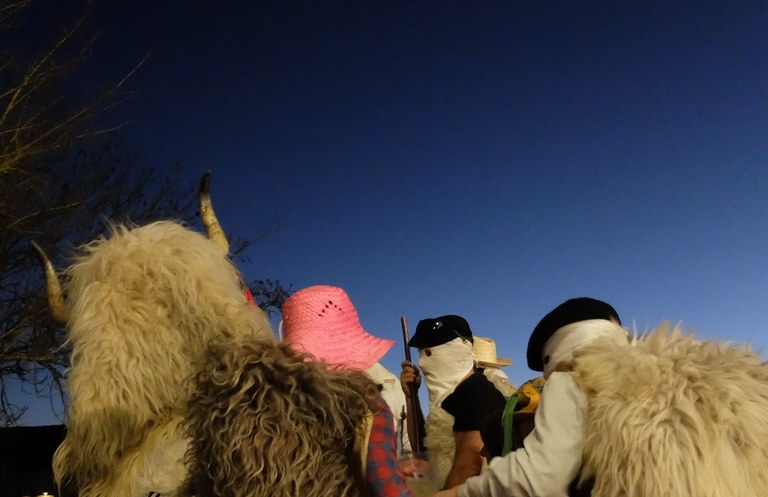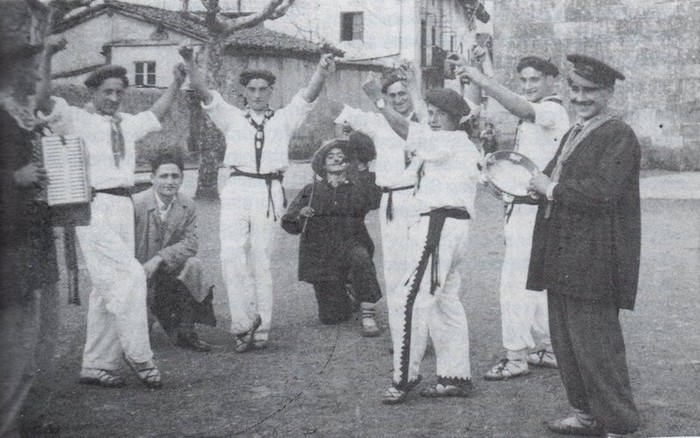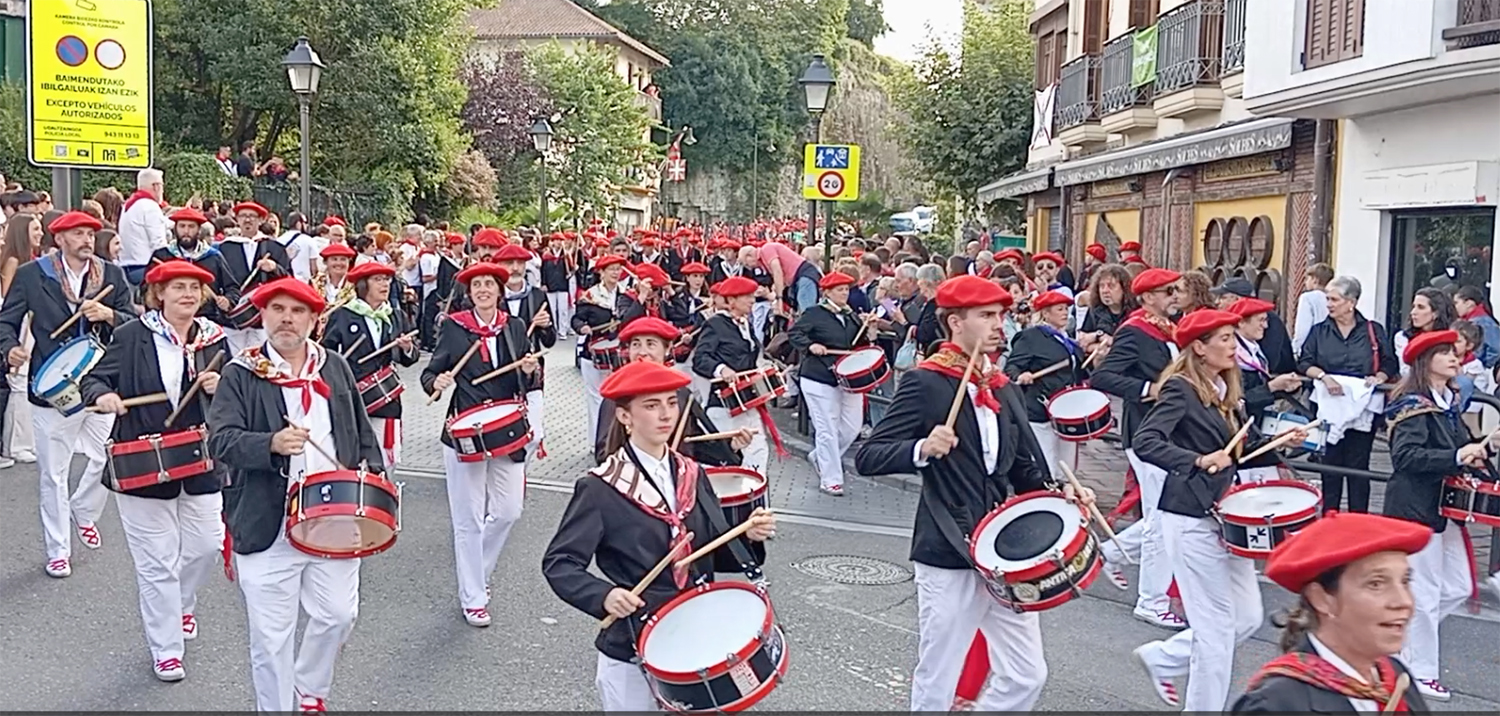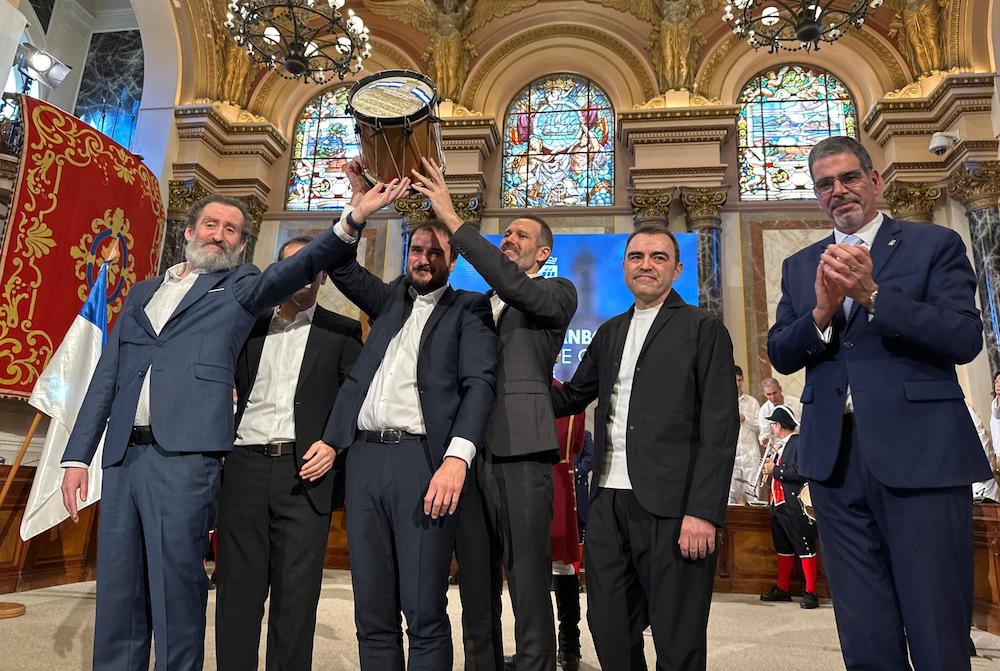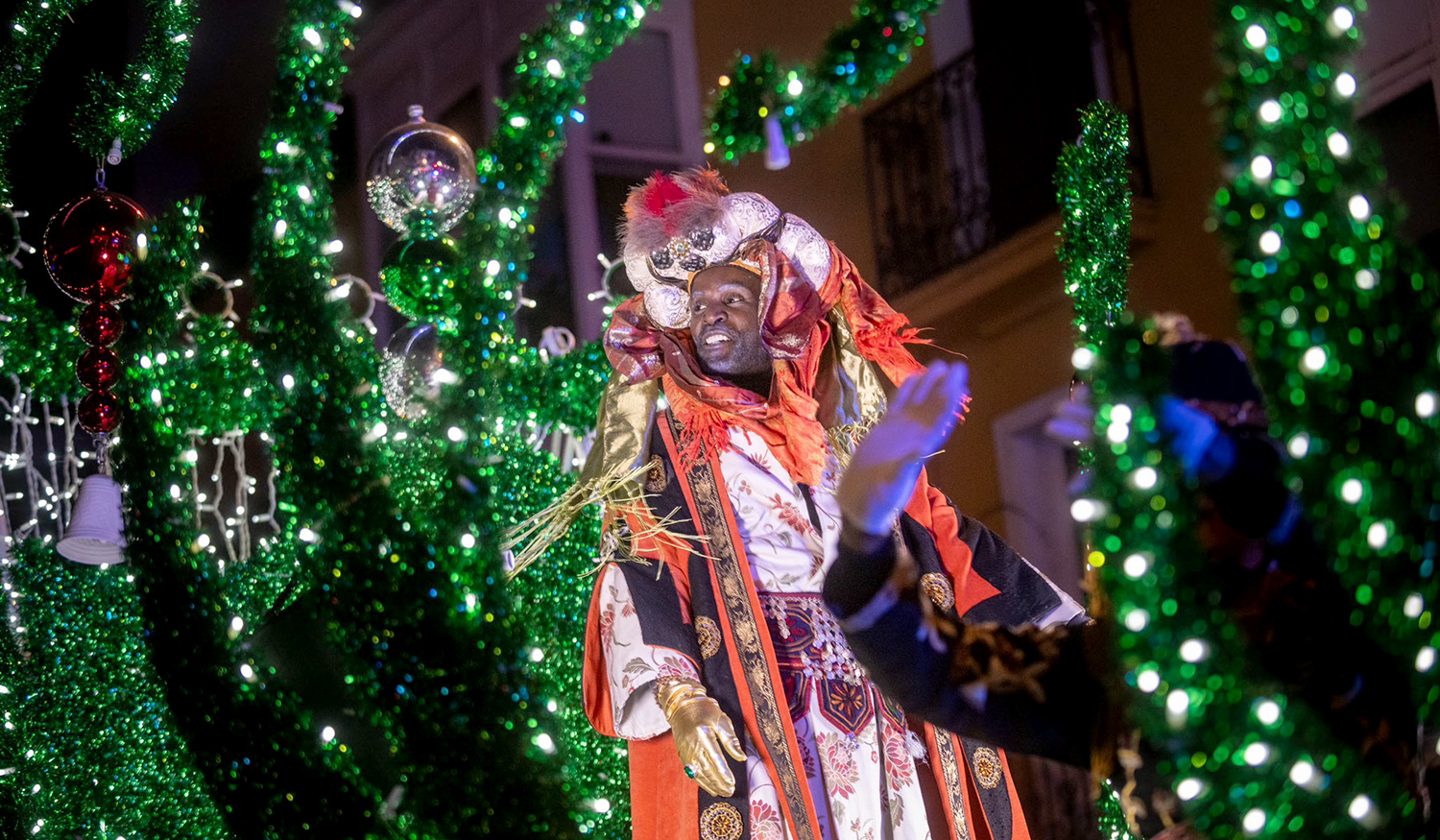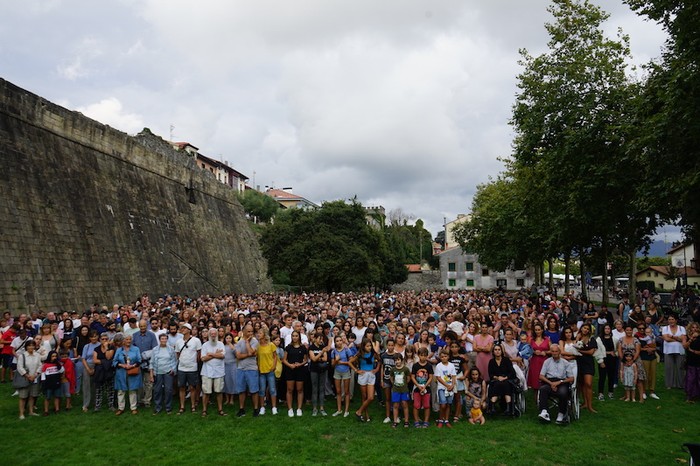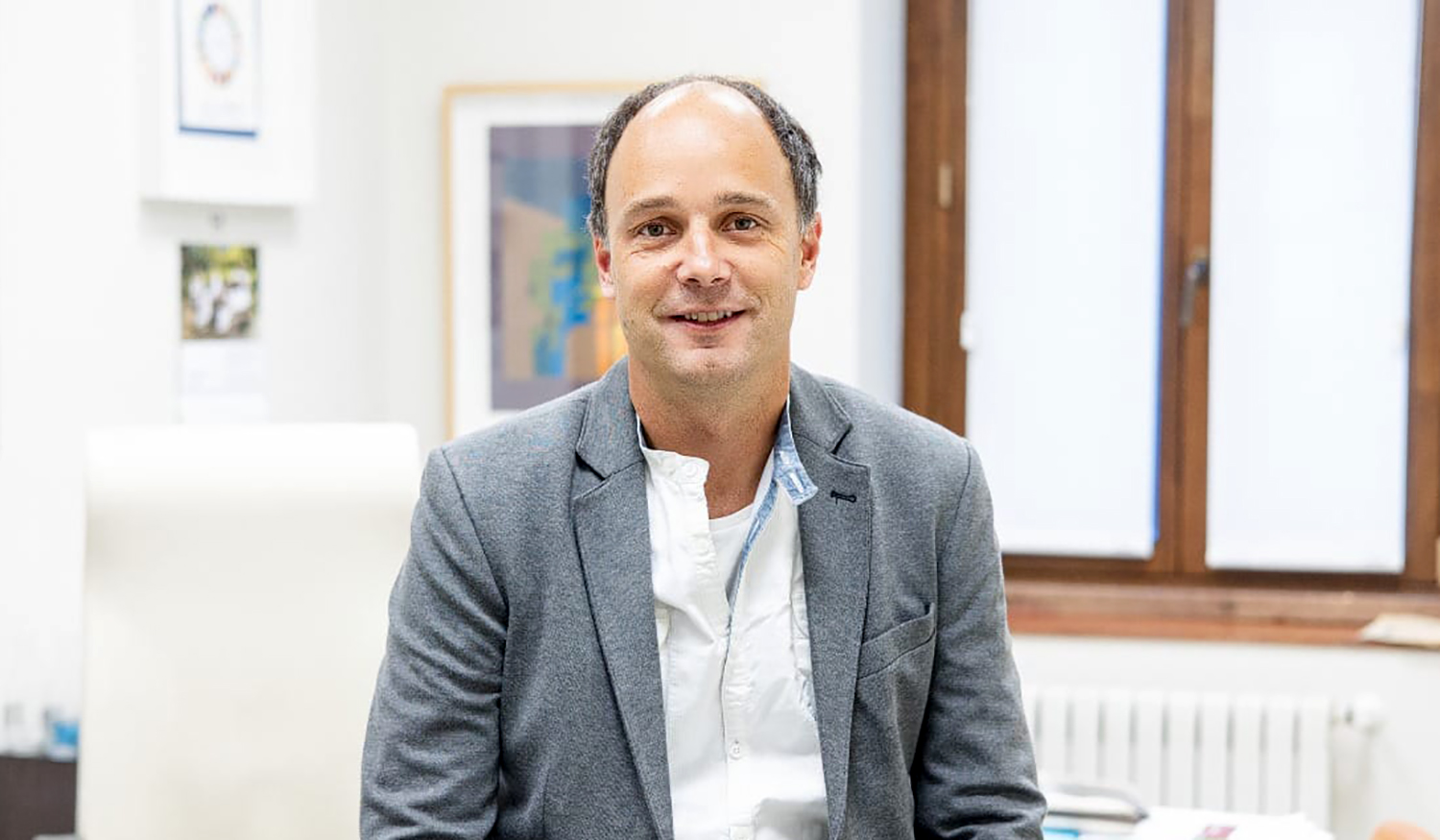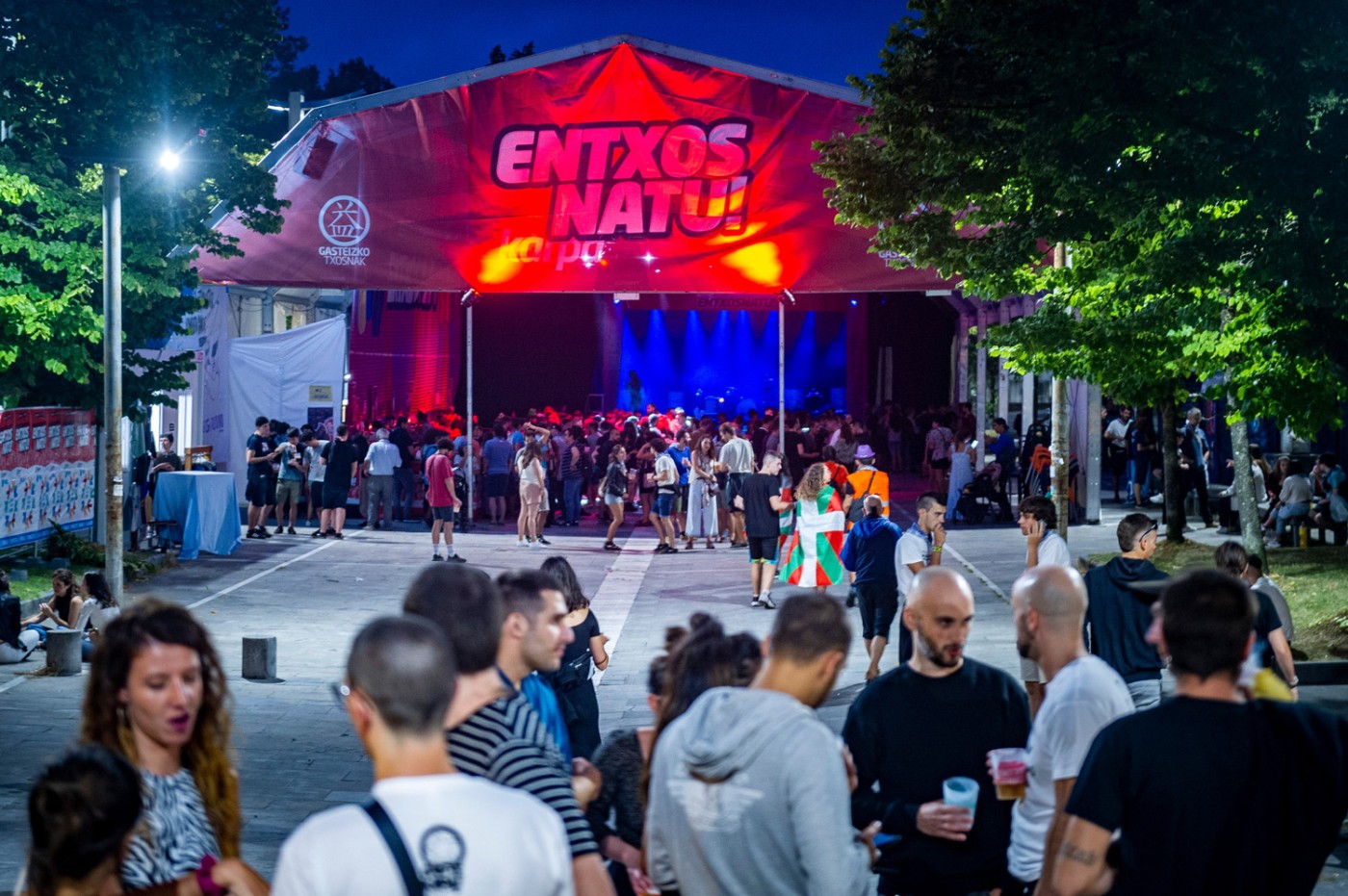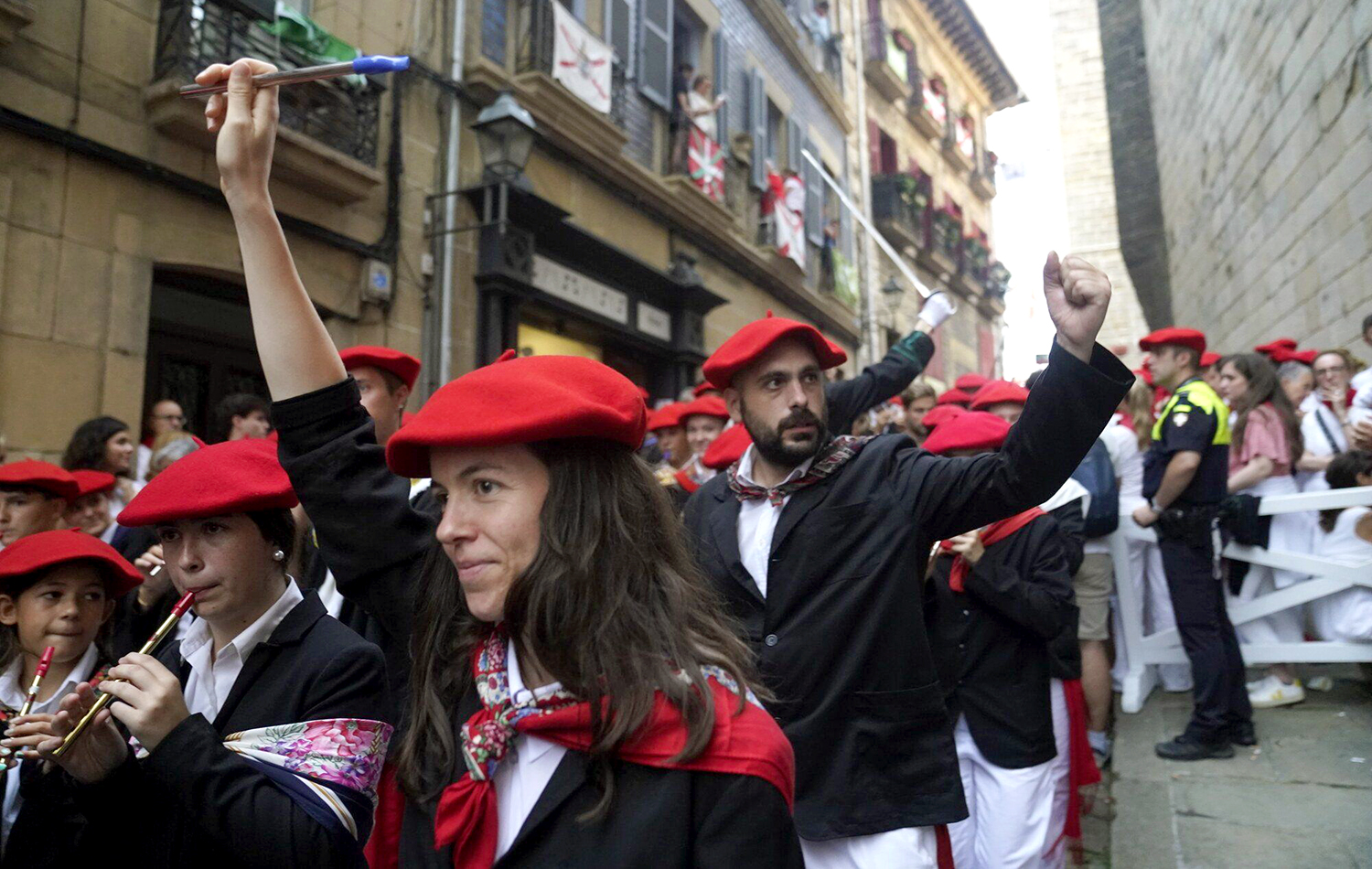"Thanks to the celebration of Halloween we have known that children played with the pumpkins a hundred years ago"
- The daughter told Jaime Altuna that they had invited him to celebrate Halloween and he let him go to the party, but he felt uncomfortable. Altuna told his father what happened, who replied that they also celebrated that. The anthropologists Jaime Altuna and Josu Ozaita have spent a year and a half researching the phenomenon. Reactivation of extinguished pumpkins. The ethnographic study La Noche de los Ánimos, the children's celebrations of Halloween and Gau Beltza was carried out thanks to the Juan Sanmartín scholarship of the City Council of Eibar.
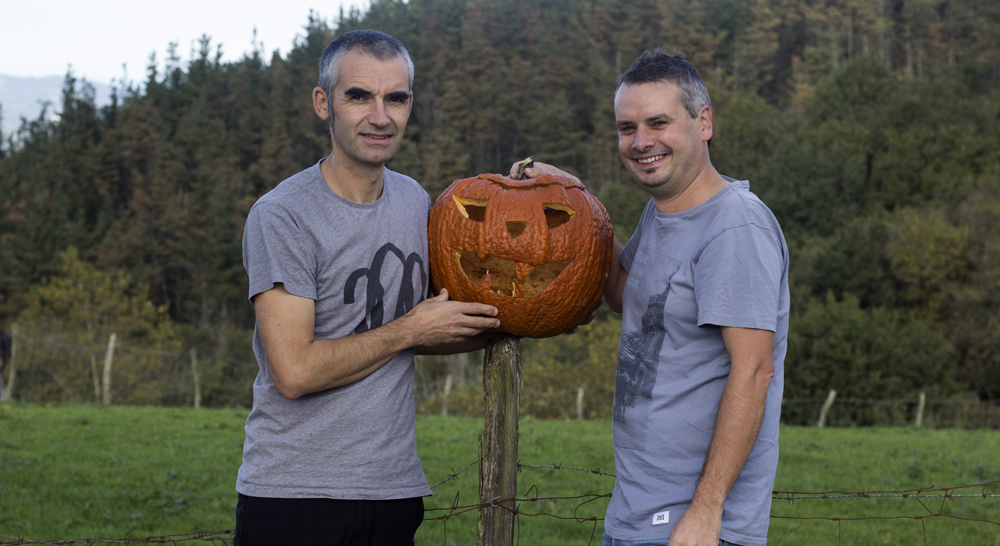
What strength does Halloween have in Euskal Herria?
Jaime Altuna: It is widespread in Euskal Herria, especially thanks to the media. Children meet with friends, dress up and go out and ask for at dusk. They demand more in shops and bars than in houses. There are many sites where a no ordea.Talka is received between adults and children.
Among us, what is the original celebration at that time?
Altuna: We have realized that on 1 November and 31 October different things are celebrated in the Basque Country. There is a movement that is creating new things and recovering the practices of yesteryear.
Josu Ozaita: On November 1, the night of souls is one of the celebrations. In the 1990s they began to take place in Mutriku and there were several associations that organized the festival. Compared to the Night of Souls today, this time he was addressing young people. The Gaztetxe, in which the bars participated, used to play at night. At Elgeta, children began celebrating Halloween and as a reaction adults created the Night of Souls in 2013. It is nice that instead of banning it you have been given the opportunity to celebrate it, because it is an attractive celebration for children. They meet with friends, in the dark, and for a child it's the first experience that comes out at night with their friends. They dress up, they experience different emotions ... Pumpkin is one of the central elements. The feast is made in Basque and the soul is given special importance.
We often associate pumpkin with Halloween, but it's something that comes from far away.
Altuna: At a time when pumpkin, turnip or the vegetable garden were used, Europe was very widespread. The goal was to take those things when they were in the orchards, put the candles and scare the people who came along the way, it was a kind of game that was made in the fall, not a party.
Vinegar: They did it in rural areas. There was no current mobility, and these kinds of games were invented. They played with zucchini in the shape of heads. To frighten, in the dark.
Instead of the Night of Souls, in some places they also celebrate the Black Night.
Altuna: They have a similar scheme. In the Night of Souls they give more importance to the soul, to death, and in the Black Night to darkness. These are festivities that have been created in recent years to recover some rites performed by grandmothers as a reaction to Halloween. In a way, against the “American” model.
In Eibar you have found a clash between the two models. On the one hand El Corte Inglés and on the other Arimen Gaua.
Altuna: Children are at the center of an identity struggle, between the capitalist holiday model and the response made before it.
Vinegar: Pumpkin used to be a sort of head-shaped toy, but today, if you look at a pumpkin, you think of the United States and the consumer values. Even though the two are the same, what a change!
In Navarre, on the other hand, a round of questors is held.
Altuna: On 1 November in the afternoon the round of questors is held in some towns of Navarre. The children of the town meet and make a round of season as is done in many other winter holidays. They go from home to home, they tell them an expression, and those at home give them nuts, chestnuts or sweets.
Christianity conquered this party. Is capitalism at stake now?
Vinegar: The party has been linked to death from the very beginning. In the 8th century the Catholic Church took the subject of death and founded All Saints' Day. Their aim was to strengthen theirs on that holiday.
Altuna: Today, the influence of capitalism is evident, for example, on television. In October, programmes already intended for children are being bombed with Halloween. Decoration in shopping malls, propaganda... Great amusement parks exploit this theme. It's also very widespread in English academies. We often think that the party is a consumer. We've realized it's no more consumerist than other parties.
Vinegar: Children celebrate Halloween without spending almost any money. Only many take advantage of carnival costumes or cut off their parents’ t-shirts, paint their face and raise the body.
The study has been carried out from the perspective of children.
Altuna: We do not think it is wrong for adults to organise this type of holiday, but we believe that the participation of children should be guaranteed from the outset. From the beginning, ask the kids what and how they want to do.
Vinegar: Just as parties for young people do not make much sense for adults to be organised, children should also be heard.
Altuna: In the most American celebration of Halloween we have also found very nice things. They stay in the afternoon, they see a movie. They dress up, they go out into the street and give sustenance. Boys and girls are considered passive subjects. We, on the other hand, have taken the opposite view in the talks.
Is it then a phenomenon caused by children?
Vinegar: They have already started to celebrate it on Halloween and it has spread to almost the entire Basque Country. Through this action we discovered that over 100 years ago they played with the pumpkins. Consequently, we are conducting the study and at the same time conducting this interview. Many issues have been put on the table.
Does gender also influence how to participate in the party?
Altuna: Yes. Different practices are taught by gender. Those who gave sustenance were generally boys, it was somewhat masculine and nowadays this scheme is repeated. And the girls appear as receptors for that fear.
Vinegar: In El Corte Inglés are the sections of Halloween “Boys” and Halloween “Girls”. The girls show the pomp and the boys face masks, fear, death.
In the United States, institutions used Halloween to compact the community. Did something like this happen here?
Vinegar: This was a simple travesura. However, one of the objectives of the festivities that are now celebrated is to make the initiative known. The present celebration has very similar characteristics to Halloween. It gives a new vision of value and identity, Basque mythology... Instead of using plastic pumpkins, for example, use vegetables.
Altuna: In the United States, in the process of building their national identity they took various elements, including Halloween. It was the excuse to unite the existing cultural diversity around a cultural identity.
Is it important to welcome this celebration to strengthen the Basque identity?
Vinegar: With globalization we believed that all ideas and cultures would be homogenized, but it has been seen that at the same time it has also contributed to giving importance to the local. It's a global party, but the reaction has been to attach importance to the local party, which has been decisive.
Altuna: It's interesting to create alternatives to the uniform model.
As far as identity is concerned, language is also of particular importance.
Altuna: It is important that this be a central element. These alternative forms that are created are often driving Euskera from partnerships.
Vinegar: We will give three conferences and the three are organized by the Basque associations.
The theme of death is at the base of these holidays. How do we experience the issue?
Vinegar: There was a time when death was very present. When someone died, the dead man was in the house. People were going there. Today, they almost never look dead. In the camp, it was also common to see animals die or kill them for yourself.
Altuna: In dealing with the issue with the elderly, we have been told that they had the dead people present in their youth. It's taken a lot of us to ask the kids, because we were nervous. In these parties, death is an important element and can be useful to perform a collective work around some taboos.
Alardean desfilatuta ere honek «herriaren benetazko errealitatea irudikatzen ez zuela» ikusita sortu zen 2019an Guztion Alardea, «herria polarizatua dagoelako, baina ikusten ez den masa gris handia dagoela irudikatu beharra zegoelako». Eneko Gonzalez eta... [+]











